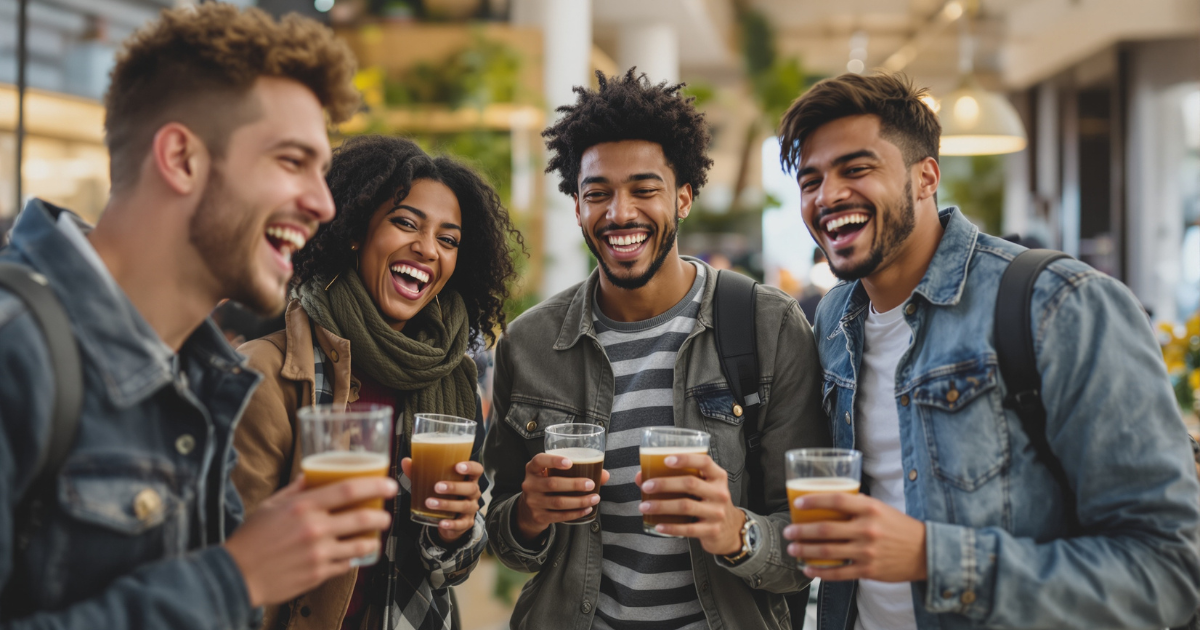Friendships in Your 20s & 30s: Why They Matter
“Losing or changing friends in adulthood? You’re not alone.”
Friendships in your 20s & 30s often look very different from the ones you had growing up. As life changes — careers, moves, marriages, and responsibilities — friendships naturally evolve too. However, that doesn’t mean connection has to fade. In fact, understanding how adult friendships change can help you strengthen the ones that matter most. Moreover, learning the psychology behind these shifts can bring comfort and clarity during times of change.
Why Friendships Change as We Grow
Friendships form easily in school or college because of shared space and time. Yet, in adulthood, priorities shift. Friendships in your 20s & 30s often face new challenges such as demanding jobs, relocation, and family life.
In addition, personal growth often changes how we connect. We may outgrow certain dynamics or seek deeper, more emotionally supportive bonds. However, research shows that even as our social circles shrink, the friendships we keep tend to deepen. Adults focus less on quantity and more on quality — choosing relationships built on trust, empathy, and shared values.
As a result, losing touch with old friends can feel painful, but it often clears space for healthier, more meaningful connections. Ultimately, these transitions are not losses but opportunities to redefine what friendship truly means.
According to the Harvard Study of Adult Development, quality friendships are one of the strongest predictors of happiness, health, and longevity.
The Psychology of Adult Friendship
Psychologically, adult friendships play a powerful role in emotional stability and mental health. They help us regulate stress, maintain identity, and find belonging — especially in a world that often prioritizes productivity over connection.
For example, friendships:
- Buffer stress. They lower anxiety and promote healthier coping mechanisms.
- Ground us in shared history. Long-term friends remind us who we are and how far we’ve come.
- Build resilience through reciprocity. When both people give and receive emotional support, friendships last.
However, maintaining those connections takes intentional effort. Digital communication may replace face-to-face time, but it rarely provides the same emotional depth. Therefore, finding balance between online and real-world connection is crucial to sustaining friendships in your 20s & 30s.
For more insight into how meaningful relationships impact emotional health, visit the American Psychological Association’s article on adult loneliness and connection.
Therapy and Belonging: Relearning Connection
Feeling disconnected doesn’t mean you’ve failed — it means you’re human. Therapy can help you rebuild connection and belonging. Through therapy, you can:
- Understand your relationship patterns and attachment styles
- Learn to communicate authentically without fear of rejection
- Heal from friendship loss or betrayal
- Develop social confidence for making new connections
In addition, therapists often help clients identify emotional barriers such as perfectionism or fear of vulnerability that make connection harder. Consequently, many people leave therapy feeling not only more grounded but also more open to forming lasting relationships.
Moreover, therapy can remind you that connection is not about being perfect — it’s about being present.
Making and Maintaining Adult Friendships
Adult friendship doesn’t just “happen” — it grows with consistency and care. Try these simple, therapist-approved steps:
- Reach out intentionally. Send a quick text, voice note, or shared photo just to say hi.
- Set realistic expectations. Not every friend can meet every need — and that’s okay.
- Prioritize shared experiences. Walks, coffee chats, or volunteering together create memories.
- Be vulnerable first. Authenticity often inspires others to open up too.
- Nurture what feels mutual. Focus on reciprocity — relationships thrive when both people invest.
Furthermore, consistency matters. Even small, repeated gestures — like sending a meme, remembering a milestone, or checking in — build trust over time. As a result, your friendships in your 20s & 30s can flourish even amid busy adult lives.
The Takeaway: Friendship Is Emotional Health
Friendships are not a luxury — they’re a necessity. Investing time and care in your relationships strengthens not only your social life but also your emotional wellbeing. In other words, friendships are part of self-care.
If you’re struggling with loneliness, remember: you’re not alone, and help is available. Therapy can help you build confidence, heal from loss, and reconnect with your community.
Ultimately, building and maintaining meaningful friendships in your 20s and 30s is one of the most rewarding forms of emotional growth you can invest in.
At Talking Works Counseling NYC (and online), we help adults navigate friendship changes, loneliness, and belonging. Our therapists provide a safe space to explore connection, rebuild trust, and rediscover joy in relationships.
We accept a wide range of insurances and offer affordable out-of-pocket options starting at just $30 per session.
Reach out today; building stronger friendships begins with understanding yourself.

